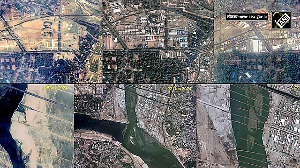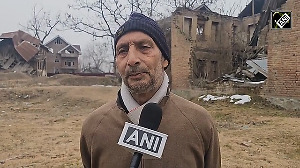Louise Butcher hopes that when she becomes the first woman to run the London Marathon topless on Sunday, having had a double mastectomy in 2022, the thousands of supporters lining the course see a powerful image of strength.
The 50-year-old breast cancer survivor runs topless to help erase the stigma around the disease -- and there are few bigger platforms, she said, than one of the world's biggest road races.
"I thought, how can we normalise it, how can we reduce that stigma surrounding mastectomies and not having breasts?" Butcher said in an interview with Reuters.
"And there's no better way really than to do it during a marathon, because you're seeing someone in real life, actually doing something powerful and strong, running a marathon, getting on with their life, without breasts, after cancer -- these sorts of messages that you wouldn't usually see."
Butcher's social media is filled with video of her topless training runs around her home in Braunton, Devon in South West England, where the locals no longer blink an eye when she jogs by.
The mother of two began training for the gruelling 26.2-mile event six months before her diagnosis for lobular breast cancer, and completed her first marathon, fully clothed, six weeks after her double mastectomy. She chose not to have reconstructive surgery.
Training was a place of solace amid the darkness of her cancer diagnosis and recovery. Running topless also helped her accept her new body.
"It got me through the cancer because it gave me something to focus on that didn't change," Butcher said.
"The cancer changed everything. It changed the way people looked at me, my family, my mindset ... but I had the focus, I had this marathon to run and that stayed the same."
Butcher also believes there was a big physical benefit.
"Getting through cancer, exercise is unbelievable for all sorts of reasons. I do think that I healed better physically, because I was running, from a mastectomy," said Butcher.
She was walking at a brisk pace a week after surgery and was back running two weeks after.
"It helped my mental health as well. There were so many reasons to keep running during that time."
Running a marathon also left no room for pity.
"Even though (the pity) was coming from a good place of caring, it made me feel weak. The running and the marathon made me feel strong," she said. "You can't pity someone running a marathon can you? There was a lot that drove me on to do it."
Butcher said the response has been about 80% positive and even the 20% negative was important, she added, because it created dialogue.
Butcher, whose children are seven and 13, hopes to raise awareness around lobular breast cancer, which is the second most common type of the disease but is often not detected in early mammograms.
Butcher is also running the London event to raise funds for Breast Cancer Now.
A London Marathon spokesperson said Butcher planned to follow race regulations that stipulate runners must show their running bib at all times.













 © 2025
© 2025